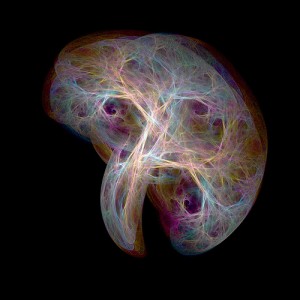 Alexander Powers is a pediatric neurosurgeon at Brenner Children’s Hospital, part of Wake Forest University Baptist Medical Center. He’s seen more than his share of sports injuries come through the doors.
Alexander Powers is a pediatric neurosurgeon at Brenner Children’s Hospital, part of Wake Forest University Baptist Medical Center. He’s seen more than his share of sports injuries come through the doors.
Doctor Powers explains, “I grew up playing soccer, basketball, baseball and rowed crew. I also have three children, including two boys, ages 6 and 8, who play Pop Warner football. But I worry about youth sports as much as I love the games because of the risk of head injury. That’s why, when I’m not in the operating room, I’ve been on a mission to raise awareness about the signs and symptoms of traumatic brain injury.”
That’s why Dr. Powers has been working on finding better ways to identify and diagnose Traumatic Brain Injury (TBI). Not only has he worked with other doctors at his hospital to find better ways to diagnose these injuries, he has also been working with technology experts to find a way to intervene sooner, possibly changing the course of treatment for an injured player.
The Dangers of Concussion
The Centers for Disease Control and Prevention (CDC) reports that 135,000 children between the ages of 5 and 18 are treated in U.S. emergency departments for sports brain injuries every year. The majority are concussions, resulting in quick recoveries. But when the same child suffers repeated injuries like this, the prognosis is uncertain. Multiple concussions can put your child at risk for early onset dementia, Parkinson’s disease and many other types of neurological disorders.
Over 1.7 million people suffer brain injury from a fall, accident or sport. Approximately 75 percent of those injuries result in concussion and milder injuries. But it’s impossible to tell if an injury that appears mild will become serious. An estimated 52,000 people die every year from TBI and 275,000 must be hospitalized.
Serious TBI is easily identified. If a player loses consciousness, there is a serious injury. Subtler injuries are another story. A player may look dazed for a moment but shakes it off and keeps playing. Later on, he may develop loss of memory, serious headaches and other symptoms that make it apparent he should have received immediate treatment for his head injury. By that point, it’s too late.
Helmet Technology for Early Injury Detection
Researchers at Virginia Tech have developed a technology that may change the way we evaluate head injuries in sports. By installing a simple accelerometer in players’ helmets, the force of impact can be measured. Coaches and team doctors can monitor the output of these devices and take players out for examination when a high level of force is registered.
Contact Us
If you or someone you know has suffered a serious head injury, you know the frustrations and expense that go along with it. Contact our office for a free case evaluation, legal advice and all the help you need to determine if you should make a legal claim against the person who caused or failed to prevent the severity of the injury.



I have been a Pop Warner football coach for my son’s the last several years. I also was the Head football coach of the Orlando Guardians who play in the largest semi pro league in the Nation. (NPSFL). I am also the 2009 World Barefoot Water ski champion. Now my son’s have moved on to motocross which is also a somewhat dangerous sport as well. I have worked as a Firefighter/Paramedic for the last 15 years also working at motocross tracks seeing kids with head injuries not knowing the extent or how to advise there parents. I see great potential in a product like yours and would like to bring it into some of the extreme sports to make them safer. I would like to talk to someone about a distributorship or repping and how I could help you promote your product. I would like to see more info on the sensor’s. Thank you for your time and concern with my interest.
Mike Salber